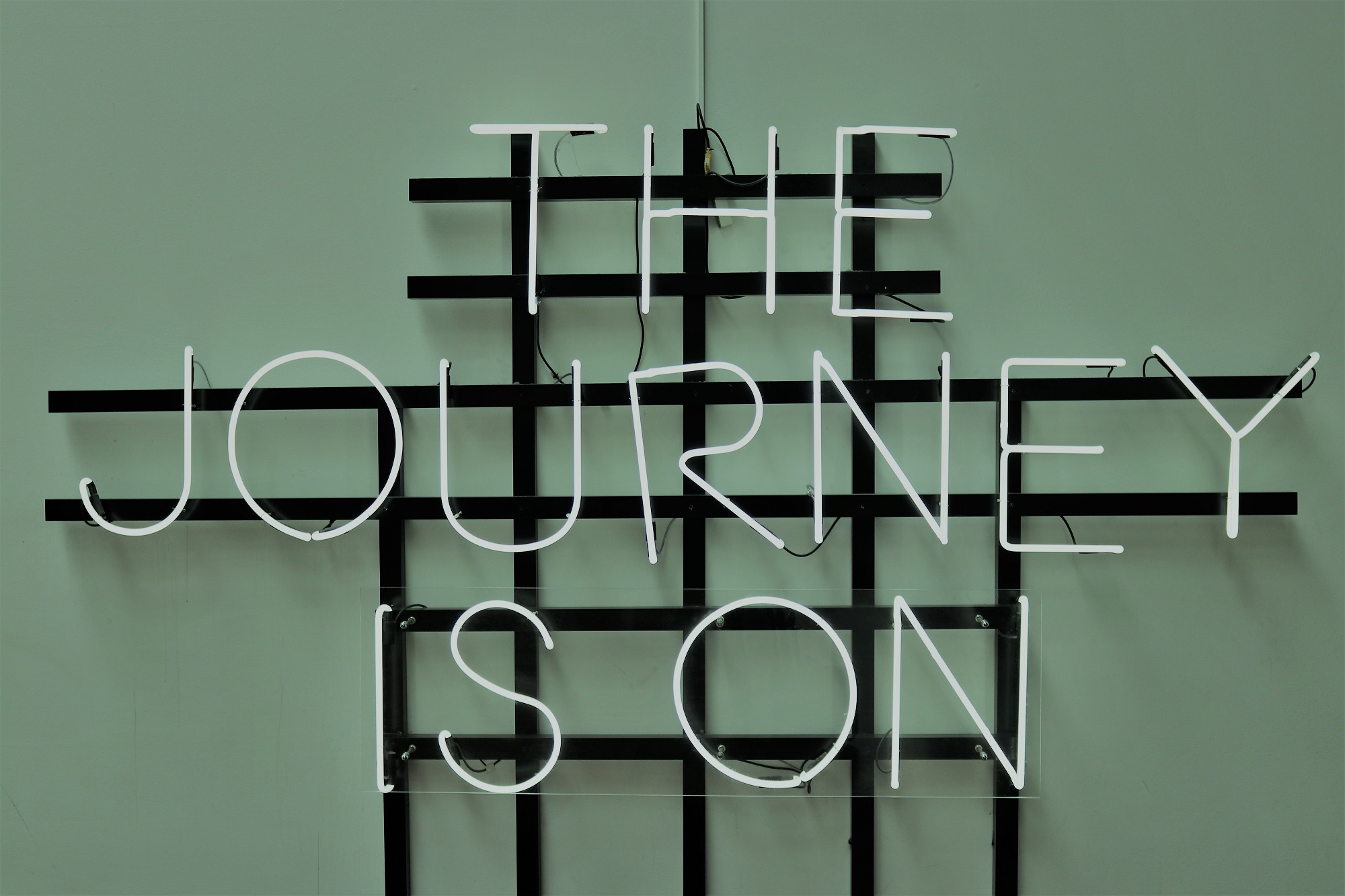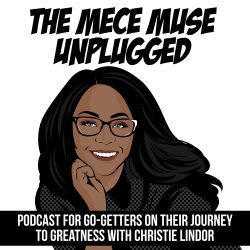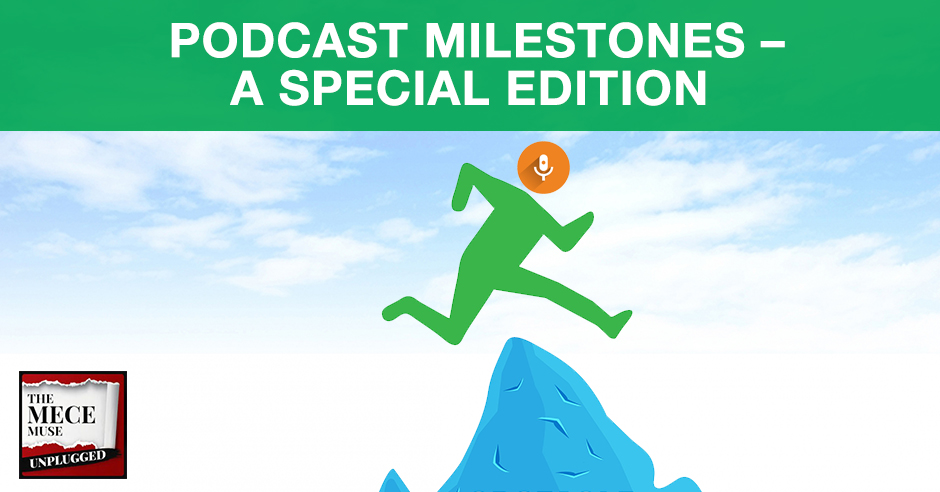Special edition of The MECE Muse Unplugged celebrating the podcast’s 9 month journey.
This episode includes a replay of an interview with Michelle Florendo, a former consultant, a decisions analysis expert & career coach for Type A professionals. A Stanford University graduate with a degree in decision engineering & analysis, Michelle shares her career journey in consulting and some of her lessons learned.
Michelle unpacks the concept of decision making for those that may be feeling stuck in their career or at a crossroads. She breaks down the components of strategic decision making, providing simple yet actionable steps, best practices, and recommendations on how you can make decisions to live a happier, healthier life.
Listen to the Episode Here:
Podcast: Play in new window | Download | Embed
Subscribe: Apple Podcasts | Email | TuneIn | RSS | More
We’re going to be doing a little bit of a different type of episode. I’m going to dub this one On the Bench. This is another Bench edition. We did a Bench episode back then where we took a break, bench or some firms call it the beach. On the Bench is a consulting lingo or taking a break. Any downtime in between projects that individuals have as a consultant is termed being on the bench. I want us to take a moment and celebrate how far the podcast has come. I wanted to thank you all for being such gracious listeners. I wanted to share some stats. The podcast, MECE Muse Unplugged turned nine months old. I want to take a pause and thank you all.
We’ve been able to produce over 40 episodes with that many guests on the show. Great conversations. We’ve had over 22,000 episode downloads of the show since it started. Over 1,000 plus subscribers and we now have go-getters listening to the show in 70 countries. I remember the last time I did a Bench episode, we had go-getters in about 38 country that that time. We’ve definitely increased our presence in 70 countries across six continents, which is fantastic. In the US alone, MECE Muse Unplugged’s biggest market for podcast listeners. We have listeners in 44 of the 50 states. The podcast has grown, expanded, and it’s been much more than I ever thought it would be.
I remember when I started the show, I was just thinking, “I’m going to put together a podcast. I’m going to dub it a pop up,” because I didn’t know how long I was going to be doing it. I didn’t know if anyone was going to tune in, if anyone was going to care to tune in. I dubbed it a pop up and say, “Let’s see what happens and if it works, it works. It doesn’t, it doesn’t.” I started bare bones. I started this thing and it’s taken a life on its own. It added a lot of dimension to my life and the wonderful relationships I’ve been able to build through the podcast. Most importantly, I continue to hear from you, go-getters. I remember I used to say that a lot on the show is, “I’m only going to keep doing this if I hear from people. If it seems like no one cares, I’m going to move on.”
As consultants, we want to always add value. To me, it was like, “If this was not valuable, we’re not doing this anymore,” and that’s okay. I was going to be perfectly okay if I tried it out and a couple months in, no one tuned in, I’d say, “I tried.” That has not been the case. I’ve continued to get emails, continue to hear people giving me feedback, things they like to hear on the show, introducing me to guests. I’ve even had people been able to make career decisions. That’s been amazingly important for me. For me to hear that this show has helped people make career decisions, help people pick projects, help people decide even what firm they’re going to go to, help people land consulting jobs. That impact is exactly what this is all about.
I’m grateful to be in this space that I am in doing what we’re doing here. Nothing brings me more joy than to be living and being the mentor that I wish I had. In the beginning, I was striving to be that. One of my mentees, I was having a conversation with her and she reminded me and said, “Christie, you’re no longer trying to be the mentor you wish you had. You are the mentor you wish you had.” I thank her for that reminder and I hope that I continue to bring that through and through in the show and as long as the show continues to be available. In celebration of thanking you, go-getters, and in celebration of these tremendous milestones, I wanted to do a little bit of a flashback episode. I was going through my mind and thinking about all the different 40 plus episodes that we’ve done. There were a couple of interludes and we count that we’re probably up in the 50s to be honest. I took a step back and thought, “Which episode really helped people? Really provided a lot of impact?” All of them are great.
The one that was the most timeless was an episode that I did with Michelle Florendo and we talked about the psychology of decision making. Michelle is a former management consultant. She is a decision analysis expert and a career coach. On that episode, she unpacked not only her journey in consulting, how she made the transition into the career coaching work she’s doing today. She also broke down the concept of decision-making, what are the components of strategic decision-making and how you can take these concepts and apply it time and time again, whether you are making big decisions or you’re making small, simple decisions. She helps you think through that. I know that decision-making when I talked to my mentees and when I talked to a lot of go-getters out there, people who sometimes feeling stuffy, they feel overwhelmed. There are a lot of opportunities out there, a lot of decisions, a lot of different things and people are always scared to make the wrong decision. Anyone who is ambitious, high performing and motivated, we sometimes build that pressure onto ourselves.
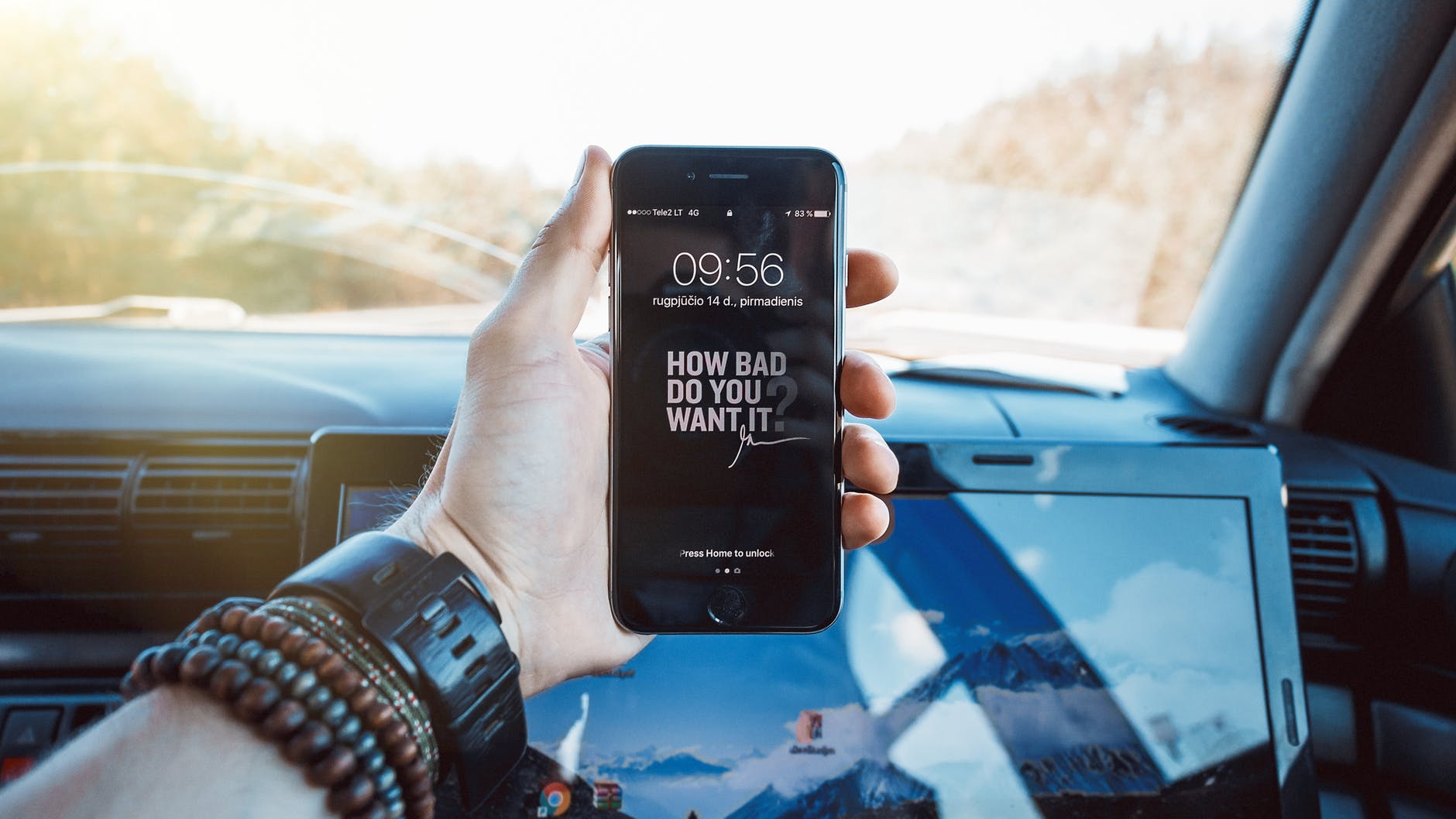
What I loved about this episode was not only the simplicity of the concepts that Michelle shared, but also the tremendous values it brings. I definitely want to hear from you all so drop me a line, MECEMuseUnplugged@gmail.com if you’ve got any other ideas, thoughts you’d like to share on decision-making or anything in general. I am heading the TEDx stage for the first time. By the time we speak, I will officially become a TEDx speaker. I will be giving a talk in Spain on How To Create High-Performing Organizational Cultures. I look forward to sharing those perspectives and I look forward to sharing the video. Thank you so much again.
Interview with Michelle
Michelle, thank you so much for joining us on The MECE Muse Unplugged. How are you doing?
I’m doing well. Thanks for having me.
Maybe you can take a moment to introduce yourself to the go-getters of The MECE Muse Unplugged.
I feel like with all the different things that I’ve done, the way that I boil things down. I’m essentially an engineer by trade. That’s where I started, but also a Type A management consultant, former brand marketer turned career coach for high-achieving professionals.
It’s such a nice mash-up. Engineer, consultant, and then was a coach. If you can take a step back and share how did you decide to go into consulting.
Looking back, I had no idea what consulting was when I started college. I feel that can sometimes be a common thing because to this day, my dad does not understand what I did when I was a consultant. Originally, I was good at math and science. Going into school, I went to Stanford. I knew that I wanted to be an engineer. I wanted to be able to use my analytical skills to be able to solve problems. Engineering seemed to be the way to do it, settled on industrial engineering with a specialization in decision engineering. Over the course of my undergraduate career, I found myself interacting with a lot of different students who were interested also in problem solving but more on the business side of things. They were talking about management consulting. I went into school having no idea what that was, so I’d ask, “What’s that?”
The way that it was explained to me was that consultants essentially get to go around and help companies and other organizations solve their problems. I thought, “That sounds awesome. I love solving problems. I would love to help solve problems for other people as well.” When I was going through recruiting, I looked at a lot of different consulting companies. I found one where the people were a great fit and decided to start my career there. Even though I eventually left the world of consulting, it was such a wonderful place to learn and get great exposure to a number of different things. If I had to do it all over again, I still would.
If you could share a story of you’re a-ha moment when you decided that it was time to make a different decision. Share a little bit with us the crossroads you we were at and how did you make the leap from consulting into coaching.
I did a number of different things before I ended up in coaching. Consultant was a great place for me to start, learn the ropes of being able to interact with clients, work on a team, solve ambiguous problems. Over the course of my time, I was working at a boutique consulting firm. I found myself not seeing a future for myself at the firm. Because while I continue to learn the things that I was learning, it was not necessarily the direction in which I wanted to grow. I remember being on a particular project and it was incredibly stressful. The client was demanding and I hit a point where it’s like, “This is not where I want to stay for the next five years.” At the same time, I felt so lost because I hadn’t done the thinking around, “What is it that I would do instead? What is it that I actually want to do?” I just knew that what I was doing at the moment wasn’t it.
I didn’t have a clear vision of what I wanted to do next. I felt stuck and stayed that way for a bit of time until I was talking to mentors, talking to fellow alums. One of my mentors said, “Michelle, let me get this straight. You studied decision engineering and you use this skill set to help companies make the best decisions for them. Why not use that same skill set to make the best decision for yourself?” I thought, “Why didn’t I think of that?” It speaks to the fact that it’s valuable to have mentors sometimes, people on the outside to point out what may have been right under your nose the entire time. With that advice, I leaned back on my training and decision analysis and thought through, “What is it that I want? What were the decisions that had me arrive at this place? What were the factors of those decisions that didn’t work for me anymore? How did I want to change? What options existed out there that could be a better fit?”
We’ve all gotten to that stuck moment within our lives. I know I’ve had a couple moments like that. It was great that you had such an amazing mentor to help you see that because the answer is sometimes right in front of us.
Sometimes it’s hard to see. We’re up to our ears in something else.
I came across a quote you said in a video. It’s such an important and grounded quote. You said, “What we were taught is to be successful but not to be happy.” That’s such a powerful quote and it’s important for people to think about that sometimes, especially in careers that are as demanding as consulting. If you could share a little bit of context of that quote and where you were coming from in that phase?
I’m the daughter of immigrants. At least that’s the story that I grew up with, and this is going to be my best impression of my dad, “The key to success is to study hard, do well in school, go to college, get a good job.” I don’t know if that story or that formula resonates with you. That’s what was drilled into my mind growing up. “I’m going to do that. I’m going to study hard. I’m going to do well in school. I’m going to go to the best college I can go to and then I’m going to go and get that good job.” What I realized was that wasn’t it. There was still more to the so-called formula. That formula worked for me in order to get to a place where I was successful, but that didn’t necessarily mean that I was happy. Sometimes we conflict the two.
It’s something that I see a lot in the clients that I work with in my private practice where they’re high-achieving Type A professionals. They know the things they need to do in order to succeed. They had their plan. They planned who knows how many steps in advance. They executed the plan and they’re there and they’ve made it and yet something doesn’t feel right or it doesn’t feel fulfilling. Maybe it did in the beginning but over time, they realize something is missing. That’s a trap that high achievers can fall into sometimes, especially because we’re used to being able to execute well against this plan of action, this pre-carved out path. We forget that there’s this other component to life and that’s doing the work, doing the self-reflection to understand. Outside of what we’ve been told is success. What does success actually look like for us? What does that mean and how does that either align or differ from these pre-carved out paths that we’ve been made aware of?
You said that story and I was watching your video and I felt like you were talking to me. I did because I was thinking about it. I was like, “Michelle’s dad and family must know mine. They must be reading the same playbook,” because I heard the same things growing up. I ended up going to business school because that was the thing my mom told me that I should do in order to be successful. I had four career paths, either become a doctor, a lawyer, an engineer or an entrepreneur. I don’t like blood, I didn’t know if I wanted to be a lawyer, I’m not that great of an engineer, I don’t see myself doing that. I was like, “I’m going to become a business person,” and that’s how I made my decision. It’s funny how that decision is what led me down this path. I didn’t know what consulting was either. I don’t know if it’s the first generation experience or if it’s others. I’m curious if others have the same mentality? You speak to a lot of different professionals. What are your thoughts? Is this an immigrant experience?
I do think that that whole ‘study hard, go to school, get a job’ formula resonates with a lot of children of immigrants. I do think that people who may not even have had parents who were immigrants or people who are not first generation, if they’re in that high achiever set, there still is this common feeling of, “If this, then that. If I do this, then I will be successful. If I get this, then I will be happy.” Where things don’t work out is when that formula doesn’t turn out to be true and then people feel lost. “I did all of the things. I did everything in the list. Why am I not happy?” I talked about this in an article that’s on my LinkedIn. What’s interesting to me is that sometimes I’ll see Type A high achievers in this place where they feel stuck, they feel unhappy, but they won’t say anything. They won’t reach out. They won’t ask for help because there’s this level of almost shame around, “I did all the things. Why am I not happy? I have this great job, I have this great salary, all these people would love to be where I’m at. I should be happy.” Then there’s almost this spiral of, “I should be happy but I’m not. Why am I not happy?” Sometimes it devolves from there. It’s been interesting to see that in people and see the shift that can be made even when they make that first decision around, “I don’t want to be unhappy anymore and I want to do something about it.”

Since you did study decision analysis and I know that’s probably the framework of a lot of the work you do, it’d be great if we can talk about that. If we take the idea of decision and we unpack that, maybe you can share some thoughts on ways that people can make more meaningful decisions if they are stuck or if they’re trying to solve a specific problem. Share with us some of your best practices.
One of the things that I’ve realized is that my mission in life is to empower people to be happier through the application of better decision making. When I think about it, it’s funny because when I tell people what I studied in school and essentially what I’ve been studying for the past fifteen years. Studying decision engineering at Stanford and then studying how that can be applied to personal decision-making, I get a lot of people coming up, “I hate decisions. I hate making decisions. It stresses me out. Can you tell me how to do this better?” I would love to get to a place where people can see that decision-making doesn’t have to be this stressful experience. It can be really empowering. If you find yourself in a place where things aren’t working out, one of the most empowering things you can do is decide to do something different or decide to take action.
It makes me think about why is it that decisions feel stressful or get people tied up in knots? One of the things that I noticed was there’s this fallacy out there. If people were to recognize this other fundamental truth of decision analysis and decision engineering, it would free them from a lot of stress. This principle is basically the fact that the quality of your decision is separate and distinct from the quality of the outcome. A lot of people get stressed out because they get caught up around, “What if I make the wrong decision?” I’ll probe people about that, “What makes a decision wrong?” They might say, “What if I make a decision to do this thing and it turns out that something bad happens?” I’ll say, “Did you know that bad thing was going to happen when you had that decision?” They said, “No, because it was unexpected.” I go, “You made the best decision you could with the information you had.” Sometimes that lands with people. The way that I like to explain it even further is decisions are about the things you can control. Uncertainties are the things that you cannot control, and you can’t beat yourself up about the uncertainties that you can’t control.
A classic example of this is if you think about the weather. We get weather reports and I still find it fascinating that in this day and age, we can’t fully predict the weather. Let’s say that you wanted to go to the beach this weekend and the weather reports say that there’s only 15% chance of rain. I would ask someone, “Given the 15% chance of rain, would you choose to go to the beach if that’s how you want to spend your weekend?” They may say, “Yes.” Let’s fast forward. Let’s say you go to the beach and then it rains. Now was that necessarily a bad decision? Most people would say no. It wasn’t your fault that it rained and by all measure of the information you had at your hands, you didn’t think it was going to rain; it was only 15% chance.
If people realize and internalize the fact that their decisions and the quality of their decision, whether it’s good or bad, is separate from the quality of the outcome, it’ll free them from a lot of stress. They’ll recognize that you can only worry about making the best decision you can and all the uncertainties that are outside of your control, you’ve got to let go of. The good news is that once you’re at the beach and if it’s raining, you have a chance to make a new decision. You can empower yourself to choose to go into a restaurant and get out of the rain.
I’m sure people are going to probably be freed from the chains of not acting sometimes. Not only like, “Can I make a bad decision,” but sometimes people don’t make decisions for fear of missing out on the unknown. What you said was spot on and I can hear chains breaking literally, people rethinking that. That was powerful. Thank you for sharing that. What advice would you give any consultants or aspiring consultants out there that may be at a crossroads? They’re trying to make the right decision. I love how you talk about how you figured it out when you were in consulting and at some point it was not for you. To your point, there are probably a lot of people out there that either consulting is for them and they’re scared to make the wrong decision or they realize they’re in consulting and it’s not for them and they’re scared again to make the wrong decision. What advice would you give both parties?
You got to focus on what are the things that you can control and that’s being thoughtful about the decision in front of you. One of the insights that I’d love to share is that every decision has three components. If you think through each of those three components, you can be pretty confident that you’ve taken the time to be able to make a good decision. The first of those three components is understanding what your objectives are. Your objectives are what is it that you want? To what you had said earlier about that quote that you pulled from my video, it’s not about what is it that you want to make yourself successful, or what is it that society wants for you in order for you to be successful. It’s what do you want in order to be happy?

Sometimes it takes some separation and some sifting through things to understand what is it that’s core to you that’ll make you happy and what is it that’s coming from the outside? The first piece of any decision, understanding what your objectives are. The second piece is getting an understanding of what your various options are. One of the biggest mistakes people make is they’ll look first to the most obvious options. Maybe it’s, “I need to either stay in this job,” or, “I need to go to business school,” whereas there’s likely other options out there, especially beyond the most obvious ones if you put the time into exploring those. It does take time. It does take effort but I’ve found that it pays off because there are often other options out there that may be better suited to getting your objectives than necessarily the most obvious ones.
The first piece is think through what are your objectives that are unique to you. Second piece is what are your options, and the ones even beyond the obvious ones. The third piece is thinking through what information do you have on how these various options may deliver on your objectives. The key piece here is not to try to gather every single piece of information you possibly can, because in this world, you won’t get perfect information. If you’re already working in consulting, you probably already know it’s impossible to get perfect data if you’ve ever tried to get that from a client. In examining the information that you have, it’s about not how much information can you possibly get and can you boil the ocean. Instead, what is enough information and specifically which information matters in terms of how these various options deliver on your objectives.
If you take the time to examine and be thoughtful about each of those three components of any decision, your objectives, your options, the information and how much information you need to move forward, you can get to a place where you can be confident about the decision you want to make going forward. If anyone out there would love a tool to be able to help them think through those various pieces of what you may be facing at a crossroads in your career, I do have a great tool on my website that’s called the Quickstart Guide to Figuring Out What’s Next. It’s essentially 28 pages of exercises that will lead you through some of that self-reflection to help you sift through what may be relevant in the decision you’re facing.
I love the three-part framework for decision-making. That’s pithy and actionable. Thank you for sharing that with us. If people are interested in reaching out to you and connecting with you, what are some ways folks can contact you?
If you love to talk more or get in touch with me, I have a contact form on my website so you can get ahold of me there. You’re also welcome to email me at Michelle@WhatIfYouCould.be.
Thank you so much. You’ve given so much actionable techniques and practices. Any last thoughts or remarks you want to share with the go-getters?
The last thing that I would leave you with is decision-making doesn’t have to be a stressful thing. It can be an empowering thing. You always have an opportunity to make a decision. Even if you’re in a situation where you feel like nothing is in your control, you can still decide how you want to frame, how you’re seeing the situation, how you want to feel and that’s an incredibly powerful thing.
Thank you so much for that. Thank you so much for being on the show.
When I first found out about your podcast, I was excited because I thought “Finally, a podcast for consultants.” I love it. As soon as I saw MECE, “She must be a consultant.”
As I hear everything you’re saying, I’m like, “I can see this being a very popular episode because you’ve given many gems.” Thank you. Thank you, my go-getters. Here’s to your journey to greatness.
Links from today’s episode:
- Michelle Florendo
- psychology of decision making – episode with Michelle Florendo
- Quickstart Guide to Figuring Out What’s Next
- contact form – from Michelle Florendo’s website
- Michelle@WhatIfYouCould.be
About Michelle Florendo
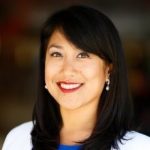 Michelle Florendo is a career and executive coach for Type-A professionals. Over the years Michelle has led workshops both domestically and internationally, showing hundreds of driven professionals how to use the principles of decision engineering to craft careers that energize them. She has spoken at a number of conferences and has guest-taught on career decision making in Stanford’s famous Design Your Life course. She has also served on the inaugural coaching team for Seth Godin’s altMBA, sits on the advisory board of FASTER Silicon Valley, and is a founding member of the Forbes Coaches Council.
Michelle Florendo is a career and executive coach for Type-A professionals. Over the years Michelle has led workshops both domestically and internationally, showing hundreds of driven professionals how to use the principles of decision engineering to craft careers that energize them. She has spoken at a number of conferences and has guest-taught on career decision making in Stanford’s famous Design Your Life course. She has also served on the inaugural coaching team for Seth Godin’s altMBA, sits on the advisory board of FASTER Silicon Valley, and is a founding member of the Forbes Coaches Council.
She is known for her analytical approach to coaching – with a BS in Management Science and Engineering from Stanford University, and an MBA from UC Berkeley’s Haas School of Business, Michelle uses a blend of decision engineering, design thinking, and lean startup principles to help her clients map their path forward.
Michelle is a Bay Area native based in Oakland, CA, and has traveled to every continent except Antarctica. She enjoys hip hop dance, making things with her hands, and eating good food.
